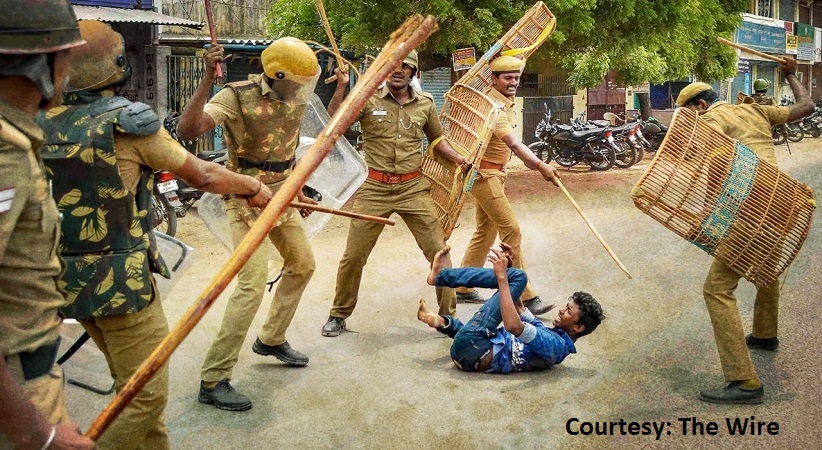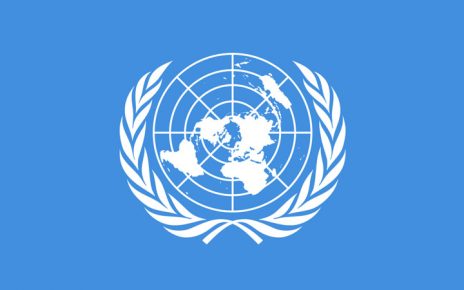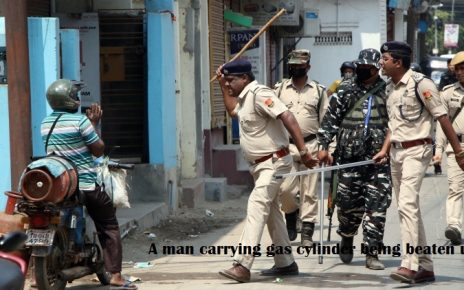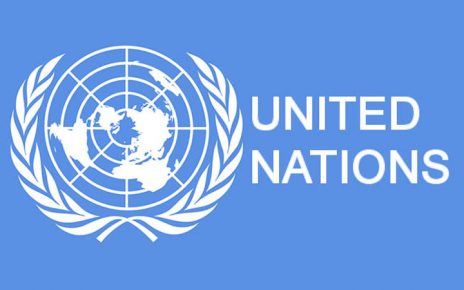The NCAT in its submission, “The indispensability of adding offences of torture in Indian Penal Code’ censured the Committee for Reforms in Criminal Laws for the exclusion of torture from its questionnaires for the 1st & 2nd Consultations on Substantive Criminal Law despite Union Home Minister Amit Shah declaring on 29.08.2019 declaring that ‘the era of third degree is gone’ .
Executive summary & recommendations
One of the objectives of the Committee for Reforms in Criminal Laws established by the Ministry of Home Affairs, Government of India is “to modernise and reform the substantive criminal laws and to align them with constitutional morality and social aspirations”, inter alia, by “……vii. developing and applying principles for criminalisation and creation of offences,” including by “identifying offences requiring addition to I.P.C.”
The National Campaign Against Torture (NCAT) has examined the questionnaires for the First and Second Consultations on Substantive Criminal Law[1] set by the Committee for Reforms in Criminal Laws. Under the Offences Affecting Human Body, the questionnaires refer to “Mob Lynching”, “Honour Killing”, “Corporate Homicide”, abetment of suicide, sexual and reproductive rights of women, as well definitions of force (s. 349), criminal force (s. 350) and assault (s. 351), kidnapping and abduction and the validity of minor’s consent. There is no reference to torture.
The Committee for Reforms in Criminal Laws must note that Union Home Minister Amit Shah while addressing the 29th Foundation Day of the Bureau of Police Research and Development on 29 August 2019 stated, “The era of third degree is gone. Use forensics as evidence to nail criminals”. In the said address, Home Minister Shah also called for a nationwide discussion on amendments needed in the Indian Penal Code and the Criminal Procedure Code to address the same.[2] Despite the Home Minister himself announcing that the crime of torture has to be part of the amendments of the IPC and CrPC, the failure of the Committee for Reforms in Criminal Laws to include “torture” in its questionnaires for the First and Second Consultations on Substantive Criminal Law is a matter of grave concern.
Taking cognizance of the use of torture, the Constitution of India, the Indian Evidence Act and Criminal Procedure Code provided necessary safeguards against torture and other cruel, inhuman or degrading treatment or punishment by the public servants. However, the Indian Penal Code does not adequately criminalise the offences of torture and other cruel, inhuman or degrading treatment or punishment when these constitutional and legal safeguards are violated by the public servants.
The results are for all to see: the NHRC registered 35,554 cases of custodial deaths/rapes including 31,779 cases in judicial custody and 3,775 cases in police custody by the NHRC during 1994-1995 to 2018-2019.
The Committee for Reforms in Criminal Laws must address the issue of torture as part of the Offences Affecting Human Body under Section XVI of the IPC.
Though Section 330 of the IPC in its illustration uses the term ‘torture’, it is not defined under law. Sections 319 (definition of hurt), 320 (definition of grievous hurt), 330 (punishment for hurt in custody) and 331 (punishment for grievous hurt in custody) exclude other critical elements of torture recognised under India’s national laws with respect to offences committed by common people and constitutional jurisprudence. The existing IPC provisions do not include (i) critical elements of physical torture, (ii) mental torture, (ii) cruel, inhuman or degrading treatment or punishment; and (iv) discrimination as one of the purposes for perpetrating torture and other cruel, inhuman or degrading treatment or punishment as explained below.
First, ‘grievous hurt’ under the IPC excludes many elements of ‘physical torture’ which are routinely perpetrated. For example, food deprivation or forcible feeding with spoiled food, animal or human excreta and other stuff or substances not normally eaten or electric shock; water boarding, insertion of foreign objects into the sex organ or rectum, or electrical torture of the genitals etc are severe torture but not included as offences under ‘grievous hurt’.
Second, ‘mental torture’ by the public servants is not defined under the IPC. This is despite that the Supreme Court in Arvinder Singh Bagga v. State of U.P. and others [(1877) 94 US 113] on 6th October 1994 stated that “torture is not merely physical but may even consist of mental and psychological torture calculated to create fright to submit to the demands of the police”.
Further, Section 3 of the Domestic Violence Act of 2005 recognises ‘mental torture”. If the ‘mental torture’ within the confines of homes can be penalised, there is no justification for not criminalising ‘mental torture’ perpetrated within the premises of police stations, prisons or any other place of detention or interrogation. Post-traumatic stress disorder (PTSD) and many other psychological consequences suffered by the torture survivors are being treated by medical professionals across the world including India.
Third, under the IPC, ‘cruel, inhuman and degrading treatment or punishment’ is not defined. ‘Hurt’ and ‘grievous hurt’ does not include ‘cruel, inhuman and degrading treatment or punishment’.
The Supreme Court in its judgement in Mehmood Nayyar Azam v. State of Chhattisgarh [AIR 2012 SC 2573] defined ‘inhuman and degrading treatment’ to ‘cover such acts which have been inflicted with an intention to cause physical suffering or severe mental pain ..and a treatment that is inflicted that causes humiliation and compels a person to act against his will or conscience’. Unnecessary and unauthorised handcuffing has been defined as a case of degrading treatment in Sunil Gupta and others v. State of Madhya Pradesh and others [1990 SCC (3) 119]. In Dr. Rini Johar v. State of Madhya Pradesh [AIR 2016 SC 2679], the Supreme Court held that “arrest in violation of due procedure seriously jeopardises the dignity of the person arrested and the law does not countenance abuse of power which causes pain and trauma”.
Section 498-A of the Indian Penal Code penalises “cruelty” towards woman while Section 4(1) of the Scheduled Castes and the Scheduled Tribes (Prevention of Atrocities) Amendment Act, 2015[3] defines a number of acts which are not physical torture but cruel, inhuman and degrading treatment meted out to members of the SCs and STs. If the national laws penalise cruel, inhuman or degrading treatment or punishment by private persons, there is no justification for not criminalising the same when committed by the public servants.
Fourth, Sections 330 and 331 of the IPC define the purpose of causing of hurt or grievous hurt “to extort confession, or to compel restoration of property”. It excludes discrimination despite Article 15 of the Constitution of India prohibiting discrimination on grounds “of religion, race, caste, sex, place of birth or any of them” while India has enacted the Protection of Civil Rights Act of 1955 and the Scheduled Castes and the Scheduled Tribes (Prevention of Atrocities) Act of 1989 to penalise the acts of discrimination and atrocities. The Ministry of Home Affairs vide the Gazette of India notification No. S.O. 2339(E) dated 21 September 2010 further notified the UN Convention on the Elimination of all forms of Racial Discrimination (CERD) to be applicable in India under the Protection of Human Rights Act of 1993.
It is pertinent to mention that Section 4(b) of the Prevention of Torture Bill, 2010 passed by the Lok Sabha[4] on 6 May 2010 refers to torture “on the ground of his religion, race, place of birth, residence, language, caste or community or any other ground whatsoever”.
TORTURE: MOST EXAMINED BUT NOT ACTED UPON ISSUE
No other issue has been studied and examined by the Government of India like torture and other cruel, inhuman and degrading treatment or punishment. The issue of torture has been examined by (1) the National Police Commission (1980) in its Fourth Report,[5] (2) the Law Commission of India in its various reports including 113th Report on Injuries In Police Custody (1985)[6], 152nd Report on Custodial Crimes (1994)[7], 177th Report on Law Relating to Arrest (2001) [8], 185th Report on Review of the Indian Evidence Act, 1872 (2003), 262nd Report on The Death Penalty (2015)[9], 268th Report on Amendments to Code of Criminal Procedure 1973: Provisions Relating to Bail (2017)[10] and 273rd Report on Implementation of ‘United Nations Convention against Torture and other Cruel, Inhuman and Degrading Treatment or Punishment’ through Legislation (2017)[11]: (3) by the National Commission to Review the Working of the Constitution (2002)[12]; and the (4) National Human Rights Commission through its Guidelines on Custodial Deaths/Rapes[13] and various Annual Reports.
At least three anti-torture Bills have been examined by the Government of India i.e. the Prevention of Torture Bill, 2010[14] passed by the Lok Sabha on 6th May 2010; the Prevention of Torture Bill, 2010 drafted by the Parliamentary Select Committee, and the Prevention of Torture Bill, 2017 drafted by the Law Commission of India pursuant to the request of the current Law Minister of India.
The enactment of a law to criminalise torture has also been subject matter of Writ Petition (Civil) No. 738/2016 filed before the Supreme Court. On 5 September 2019, the apex court disposed off the petition on the ground that “When the matter is already pending consideration and is being examined for the purpose of legislation, it would not be appropriate for this Court to enforce its opinion, be it in the form of a direction or even a request, for it would clearly undermine and conflict with the role assigned to the judiciary under the Constitution”.[15]
ASSURANCES TO THE PARLIAMENT AND UNITED NATIONS NOT KEPT:
About 148 years ago, while enacting the Indian Evidence Act, the British Raj incorporated Section 25 of the Indian Evidence Act to make confessions to a police officer inadmissible as evidence before the courts to address torture and other pressure tactics of an extreme nature to obtain confessions from accused persons. Sadly, 73 years after independence from the British Raj, independent India failed to criminalise torture.
India also repeatedly assured the Parliament of India and the United Nations since 2000 to criminalise torture and ratify the United Nations Convention Against Torture and other Cruel, Inhuman or Degrading Treatment of Punishment (UNCAT). The blatant failure to keep these assurances “does not reflect well on the Government” as admitted by then Foreign Secretary and the current Minister for External Affairs, Dr S Jaishankar before the Parliamentary Committee on Government Assurances (2015-2016) of the 16th Lok Sabha.[16] None of the successive governments implemented the assurance given in reply to USQ No. 5739 dated 03 May, 2000 in the Lok Sabha as well as to the Parliamentary Committee on Government Assurances (2015-2016) of the 16th Lok Sabha to criminalise torture under national laws and ratify the UNCAT.
India had also repeatedly accepted the recommendations of the United Nations Human Rights Council to criminalise torture under national laws and ratify the UNCAT during the Universal Periodic Review on 10 April 2008[17], on 24 May 2012,[18] and on 4 May 2017[19] and assured to take necessary actions. However, India has failed to act on any of these assurances to the UN as on date.
TIME TO TAKE A CALL BY THE COMMITTEE FOR REFORMS IN CRIMINAL LAWS:
The Supreme Court of India in D.K Basu vs. State of West Bengal (1997 (1) SCC 416) stated that custodial torture “is a calculated assault on human dignity and whenever human dignity is wounded, civilization takes a step backward”.
The Committee for Reforms in Criminal Laws has to take a call whether India shall be (i) a country governed by the rule of law penalising acts of torture and other cruel, inhuman or degrading treatment or punishment or (ii) a country permitting torture and other cruel and inhuman treatment of the persons by the public servants which the Supreme Court in Khatri & Ors v. State of Bihar (Bhagalpur Blinding case) [AIR 1981 SC 928] had described as “insulting to the spirit of Constitution and human values as well as Article 21” of the Constitution.
The Supreme Court has been setting constitutional jurisprudence against torture and other cruel, inhuman or degrading treatment or punishment. However, the constitutional jurisprudence on both criminal liability of perpetrators of torture and award of compensation to the victims as well as the D K Basu guidelines issued by the Supreme Court have not had the necessary deterrent effect to reduce torture in India. It is primarily because of the absence of national law criminalising the acts of torture and other cruel, inhuman or degrading treatment or punishment as well as complete impunity as reported by the National Crime Records Bureau (NCRB) that no conviction had taken place in any of the 500 cases of ‘death or disappearance of persons remanded to police custody by court’ from 20015 to 2018.
In the light of these facts, the National Campaign Against Torture (NCAT) recommends to the Committee for Reforms in Criminal Laws that (i) existing Section 320 IPC may be numbered as Sub-section (1) thereof and a new sub-section “320(2): Torture and other cruel, Inhuman or Degrading Treatment or Punishment” may be inserted, (ii) existing Section 331 IPC may be numbered as Sub-section (1) thereof and a new Sub-section “331(2): Punishment for torture and other cruel, Inhuman or Degrading Treatment or Punishment” may be inserted; (iii) Section 330 IPC be repealed as it becomes redundant in case of insertion of proposed Section 331(2); and (iv) a new sub-section 114-B be inserted to India Evidence Act as recommended by the Law Commission of India in its 113th Report as given below:
The detailed recommended texts for these proposed amendments are given below:
Sub-section 320(2) IPC: Torture and other cruel, Inhuman or Degrading Treatment or Punishment
Whoever, being a public servant or being abetted by public servant including a superior officer or with the content or acquiescence of such public servant, including the senior officer intentionally commits or is suspected to have committed any act for the purpose of obtaining information or confession from any person or punishes such person for any act committed or is suspected to have been committed by him or intimidating or concerning such person which may lead to the detection of an offence or misconduct or discriminates on the ground of religion, race, sex, place of residence, birth, language, caste, sect, colour or community, or commits any other act for any other purpose and such act causes (i) grievous hurt to any person or danger to life, limb or health of any person, is said to inflict torture; and (ii) physical suffering or severe mental pain or humiliation is said to inflict mental torture or cruel, inhuman and degrading treatment or punishment.
Provided that nothing contained in this section shall apply to any hurt, danger, or pain as aforementioned caused by any act, which is inflicted in accordance with any procedure established by law.
Explanation I:- For the purposes of this section, “public servant” shall, without prejudice to section 21 of the Indian Penal Code, 1860 also include any person acting in his official under the Central Government or the State Government or employed in any Government company as defined in section 617 of the companies Act, 1956, or in any institution or organization including an educational Institution under the control of the Central Government or the State Government.
Explanation II. – For the purpose of this section, “torture” includes, but is not limited to causing disability or dysfunction of one or more parts of the body, by act, such as –
(i) Emasculation and damages to eye, ear, joint, destruction or permanent impairing of the powers of any member or joint, disfiguration of the head or face, fracture or dislocation of a bone or tooth;
(ii) Systematic beating, head banging, punching, kicking, striking with truncheon or rifle butt or other similar objects, and jumping on the stomach;
(iii) Pulling out of fingernails;
(iv) Food deprivation or forcible feeding with spoiled food, animal or human excreta and other stuff or substances not normally eaten;
(v) Electric shock;
(vi) Cigarette burning, burning by heated rods, hot oil or acid; by the rubbing or pepper or other chemical substances including spices or acids on mucous membranes, or on the wounds;
(vii) Submission of the head in water or water polluted with excrement, urine, vomit or blood;
(viii) Rape or threat thereof and sexual abuse of any kind, including sodomy, insertion of foreign objects into the sex organ or rectum, or electrical shock to the genitals;
(ix) Mutilation or amputation of any part of the body such as the genitals, ear or tongue;
(x) The use of plastic bag and other material placed over the head to the point of asphyxiation;
(xi) The use of asphyxiation drugs to change the perception, memory, alertness or will of a person including the administration of drugs to induce confession or reduce mental competency and the use of drugs to induce extreme pain or symptoms of a disease;
(xii) Letting loose violent and dangerous animals or exposing to violent and dangerous animals which can cause grievous harm;
(xiii) Compelling a person to act against his/her will or conscience; and
(xiv) Other analogous acts of physical torture;
Explanation III. – For the purpose of this section, “mental torture or cruel, inhuman and degrading treatment or punishment” includes, but is not limited to the following, namely:-
(i) Interrogation without the due process of law;
(ii) Arrest in violation of due procedure;
(iii) Handcuffing without judicial sanction;
(iv) Blindfolding;
(v) Threatening a person(s) or his/her relative(s) with bodily harm, execution or other wrongful acts, implication in false cases;
(vi) Confinement in solitary cells or secret detention places or non-production before the Magistrate as per law;
(vii) Causing infliction of torture to be witnessed by the person’s family, relatives or any third party;
(viii) Denial of sleep or food or medicine;
(ix) Deliberately prohibiting the victim to communicate with any member of his/her family and his lawyer;
(x) Maltreating members of the family or a person and inflicting shame upon the victim or any one by such act as stripping the person naked, parading him in public places, shaving the victims head; removing moustaches or putting marks on the body against his will; and
(xi) Other analogous acts of mental or psychological torture;
Sub-section 331(2) IPC: Punishment for torture and other cruel, Inhuman or Degrading Treatment or Punishment
Whoever, being a public servant or being abetted by public servant including a superior officer or with the content or acquiescence of such public servant including a superior officer have intentionally committed any act of torture shall be punished with imprisonment of either description for a term which may extend to ten years, and shall also be liable to fine; and in case of infliction of mental torture or cruel, inhuman and degrading treatment or punishment shall be punished with imprisonment of either description for a term which may extend to seven years, and shall also be liable to fine.
Provided that where death of any person is caused due to torture, the person committing the offence shall be punishable with death or imprisonment for life and shall also be liable to fine.
Provided also that the court, in deciding sentence, bear in mind that a public servant committing the offence of torture or cruel, inhuman and degrading treatment or punishment deserve aggravated punishment.
Provided further that the fine imposed under this section shall be just and reasonable for rehabilitation of the victim and his family members and the fine so imposed shall be recoverable from such public servant.
Section 330 IPC:
Repeal Section 330 IPC as it becomes redundant in case of insertion of proposed Section 331(2).
Sub-Section 114-B Indian Evidence Act.
(1) In a prosecution (of a police officer) for an offence constituted by an act alleged to have caused bodily injury to a person, if there is evidence that the injury was caused during a period when that person was in the custody of the police, the court may presume that the injury was caused by the police officer having custody of that person during that period.
(2) The court, in deciding whether or not it should draw a presumption under sub-section (1), shall have regard to all the relevant circumstances including, in particular, (a) the period of custody, (b) any statement made by the victim as to how the injuries were received, being a statement admissible in evidence, (c) the evidence of any medical practitioner who might have examined the victim, and (d) evidence of any magistrate who might have recorded the victim’s statement or attempted to record it.
The failure of the Committee for Reforms in Criminal Laws to recommend specific provisions for criminalisation of “third degree torture” would make the Committee itself redundant.
Suhas Chakma
Coordinator
[1]. The questionnaires are available at https://criminallawreforms.in/questions-pdf/Questionnaires-for-Consultation-on-Substantive-Criminal-Law.pdf
[2]. Amit Shah: Era of third degree over, use forensics to nail criminals, Indian Express, 29 August 2019, https://indianexpress.com/article/india/amit-shah-era-of-third-degree-over-use-forensics-to-nail-criminals-5946195/
[3]. The Scheduled Castes and the Scheduled Tribes (Prevention of Atrocities) Amendment Act, 2015, http://ncsc.nic.in/files/POA_ACT_2016.01.pdf
[4]. The Prevention of Torture Bill, 2010 as introduced in the Lok Sabha on 19th April 2010 is available at http://164.100.47.4/BillsTexts/LSBillTexts/AsIntroduced/torture%2058%20of%202010.pdf
[5]. Fourth Report, National Police Commission (1980) is available at https://police.py.gov.in/Police%20Commission%20reports/4th%20Police%20Commission%20report.pdf
[6]. 113th Report on Injuries In Police Custody is available at http://lawcommissionofindia.nic.in/101-169/Report113.pdf
[7].152nd Report on Custodial Crimes is available at http://lawcommissionofindia.nic.in/101-169/Report152.pdf
[8].177th Report on Law Relating to Arrest is available at http://lawcommissionofindia.nic.in/reports/177rptp1.pdf
[9].262nd Report on The Death Penalty is available at http://lawcommissionofindia.nic.in/reports/Report262.pdf
[10].268th Report on Amendments to Criminal Procedure Code, 1973 – Provisions Relating to Bail is available at http://lawcommissionofindia.nic.in/reports/Report268.pdf
[11]. 273rd Report on Implementation of ‘United Nations Convention against Torture and other Cruel, Inhuman and Degrading Treatment or Punishment’ through Legislation is available http://lawcommissionofindia.nic.in/reports/Report273.pdf
[12]. Please see Volume 1 Report of the National Commission to Review the Working of the Constitution (2002) at http://legalaffairs.gov.in/sites/default/files/chapter%203.pdf
[13]. NHRC Guidelines “On Custodial Deaths/Rapes” are available at https://nhrc.nic.in/sites/default/files/sec-1.pdf
[14]. The Prevention of Torture Bill, 2010 as introduced in the Lok Sabha on 19th April 2010 is available at http://164.100.47.4/BillsTexts/LSBillTexts/AsIntroduced/torture%2058%20of%202010.pdf
[15]. Dr Ashwini Kumar vs Union of India & Anr (Miscellaneous Application No. 2560 of 2018 Writ Petition (Civil) No. 738 of 2016) dated 5 September 2019, https://indiankanoon.org/doc/19090773/
[16]. COMMITTEE ON GOVERNMENT ASSURANCES (2015-2016) SIXTEENTH LOK SABHA, THIRTIETH REPORT, REVIEW OF PENDING ASSURANCES PERTAINING TO THE MINISTRY OF EXTERNAL AFFAIRS Presented to Lok Sabha on 16 March, 2016 and available at http://164.100.47.193/lsscommittee/Government%20Assurances/16_Government_Assurances_30.pdf
[17]. UN Document No. A/HRC/8/26/Add.1 dated 25 August 2008 available at https://documents-dds-ny.un.org/doc/UNDOC/GEN/G08/161/58/PDF/G0816158.pdf?OpenElement
[18]. UN Document No. A/HRC/21/10/Add.1 dated 17 September 2012 available at https://documents-dds-ny.un.org/doc/UNDOC/GEN/G12/167/57/PDF/G1216757.pdf?OpenElement
[19]. UN Human Rights Council Document No. A/HRC/8/26/Add.1 dated 25 August 2008 available at https://documents-dds-ny.un.org/doc/UNDOC/GEN/G08/161/58/PDF/G0816158.pdf?OpenElement




